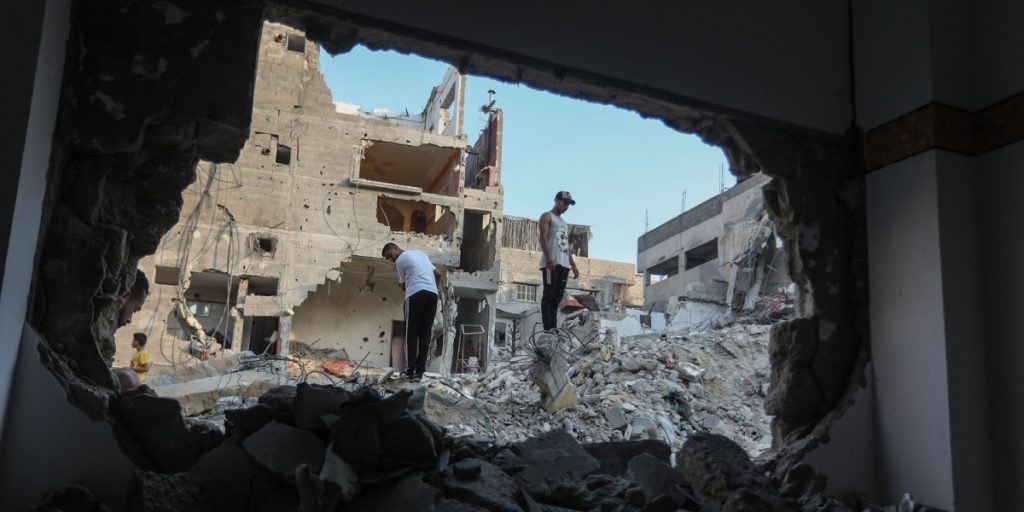Renewed talks on a hostage deal bring hope in Israel, but for many in Gaza, desperation outweighs any hope for a ceasefire.
Others are reading now
In Israel, there is hope that renewed talks on a hostage deal might lead to a breakthrough. But in Gaza, the desperation of everyday life overshadows any hope for a possible ceasefire.
Life in Gaza
Heba Radi, a mother of six, sits at an improvised oven made from rusty metal sheets over an open fire. Her hands are black with soot as she bakes bread. Radi and her family live in a tent, having been forced to move five times since the war began.
“Every day we say to ourselves: tomorrow there will be a ceasefire. Tomorrow things will be better. And then we hear again: everything has been postponed. A ceasefire has become a dream, a distant dream,” she told the AP news agency.
Life has become ten times more expensive since the war began.
Also read
Basic necessities like flour and clean water are constant worries for many in Gaza, making everyday survival more important than politics and negotiations.
Lost Hope
Few people in Gaza expect much from the negotiations anymore.
Ahmed Bakeir shared his frustration with Tagesschau: “From the first month of the war onwards, we have been waiting for negotiations every day. But after two or three weeks they say: you have failed. We have no hope anymore.”
Bakeir had packed his things, ready to return to Gaza City, but when ceasefire talks failed again, he remained in his tent.
The destruction in Gaza is immense, with television images showing bombed-out buildings and deserted rubble landscapes covered in dust.
Rafah Offensive
Middle East expert Uzi Rabi from Tel Aviv University suggests that the destruction and military pressure from the Israeli army might be pushing negotiations on a ceasefire and hostage release.
“Hamas relied on the votes against a Rafah offensive. Even here in Israel, there were voices saying Rafah could be dispensed with. The Americans said that too,” he explains to Tagesschau reporters. “But Israel insisted. Rafah was the tiebreaker that Hamas lost.”
Last week, Hamas dropped its demand for Israel to immediately cease all fighting as a condition for talks, without explaining why.
Hamas’ Stance
While internal communications suggest that Hamas leaders in Gaza are urging their political leadership in Qatar to agree to a ceasefire, the group remains publicly combative.
Abu Obeida, a spokesman for Hamas’ armed wing, claimed that their military capabilities is still strong: “During the war, we managed to recruit thousands of new fighters. And thousands more are ready and highly motivated to come to us whenever necessary.”
The Israeli army has increased pressure on Hamas by advancing into various districts in Gaza City. Hamas warns that this could jeopardize the new round of negotiations on the release of hostages and a ceasefire.
For the people of Gaza, failure in these talks would be another bitter disappointment.


